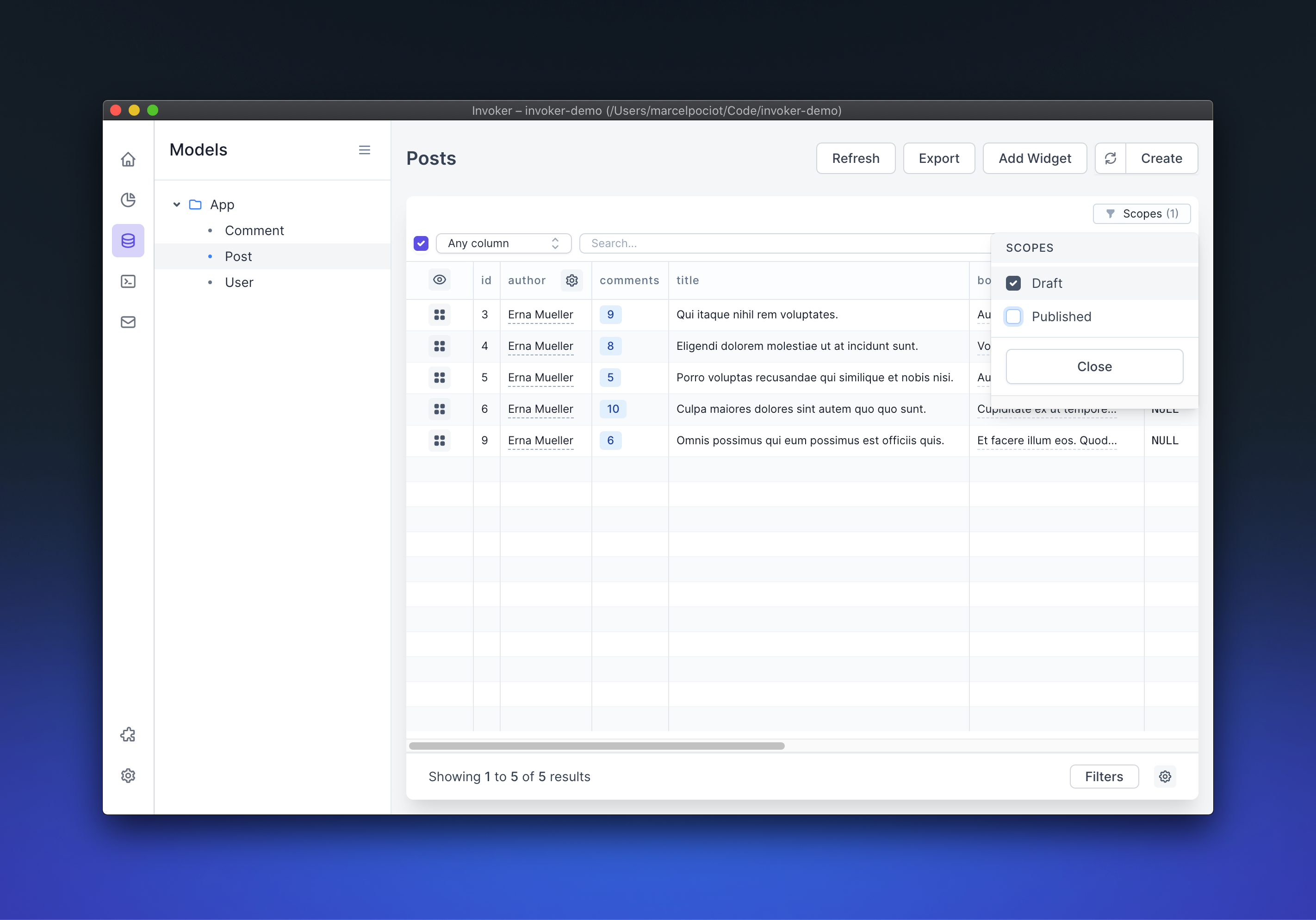Invoker
Filtering Models
You can filter the table view of your Eloquent models in many different ways, ranging from basic search functionality, applying your model scopes, or you can even make use of custom queries, leveraging the full potential of Laravel's fluent Eloquent API.
Basic Search#
To quickly search across all columns of your Eloquent model, press CMD/CTRL+F on the table view or click on the "Filters" button. This will open up the filter section above the current model table. Type any text and press enter to search across all model columns for the given string.
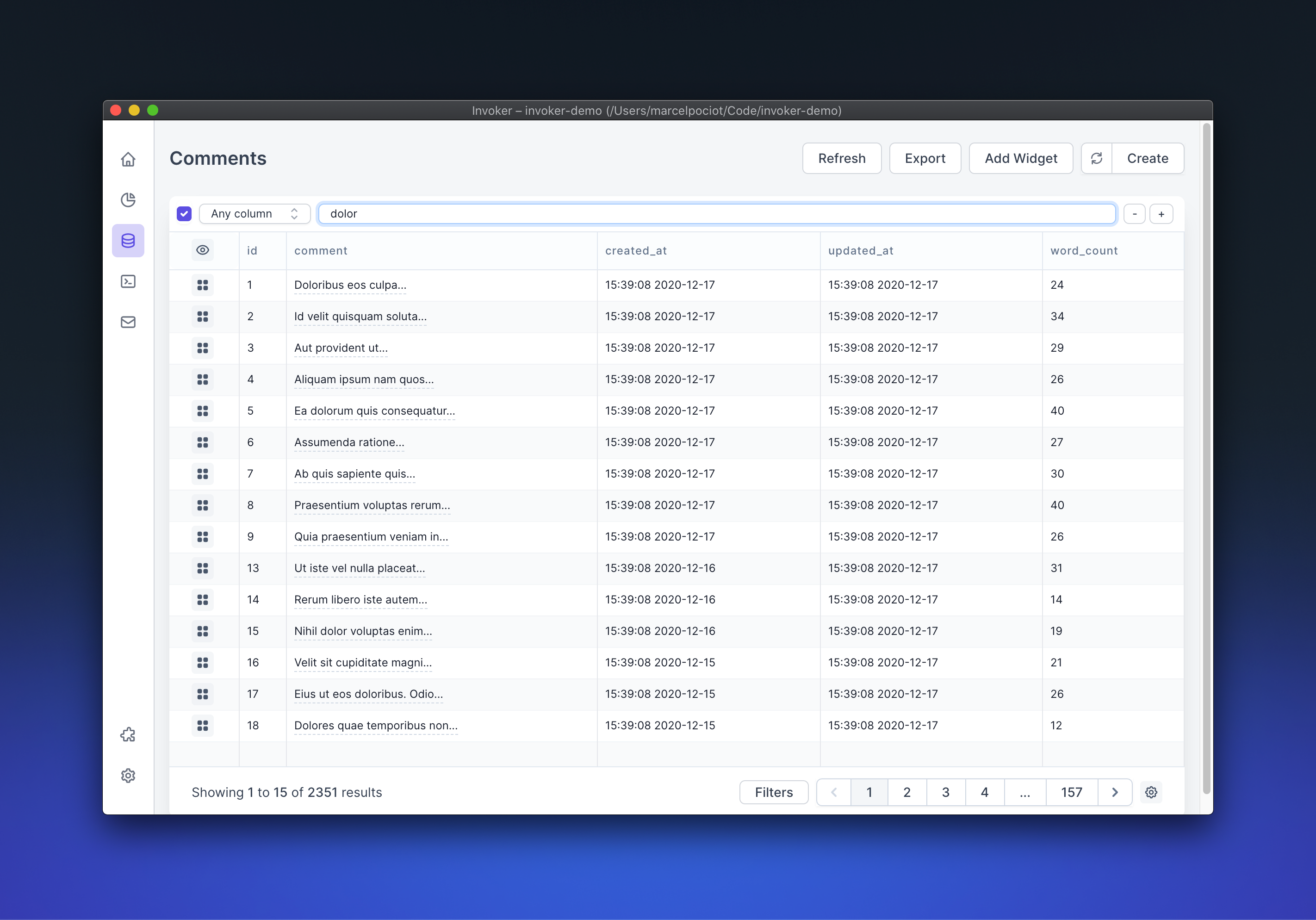
By using the plus and minus buttons you can add additional query conditions, which will all be grouped together using an AND operator.
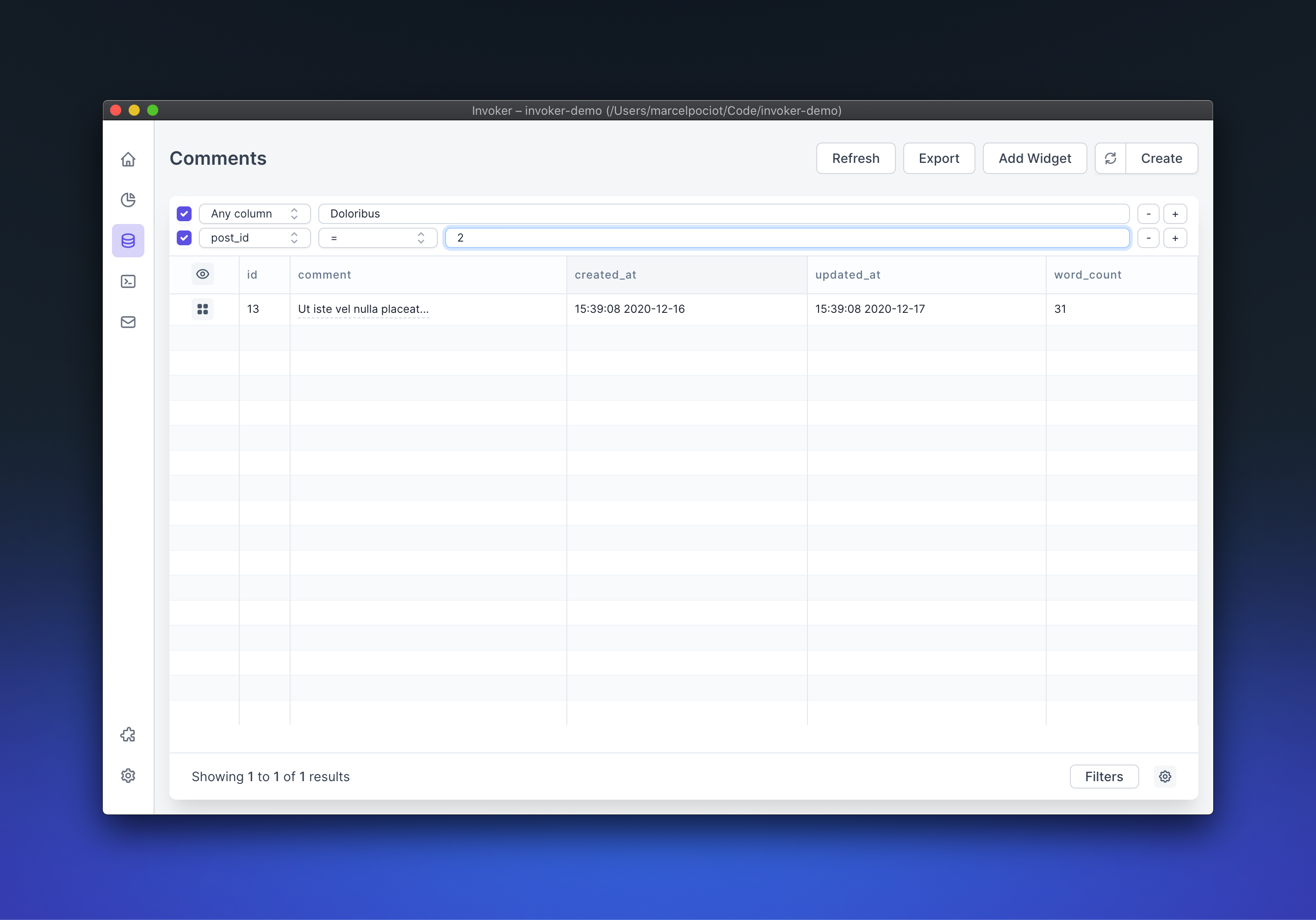
In addition to filtering the table results on all available database columns, you can also search on single columns. Just select the column from the dropdown as well as the search operator that you want to use.
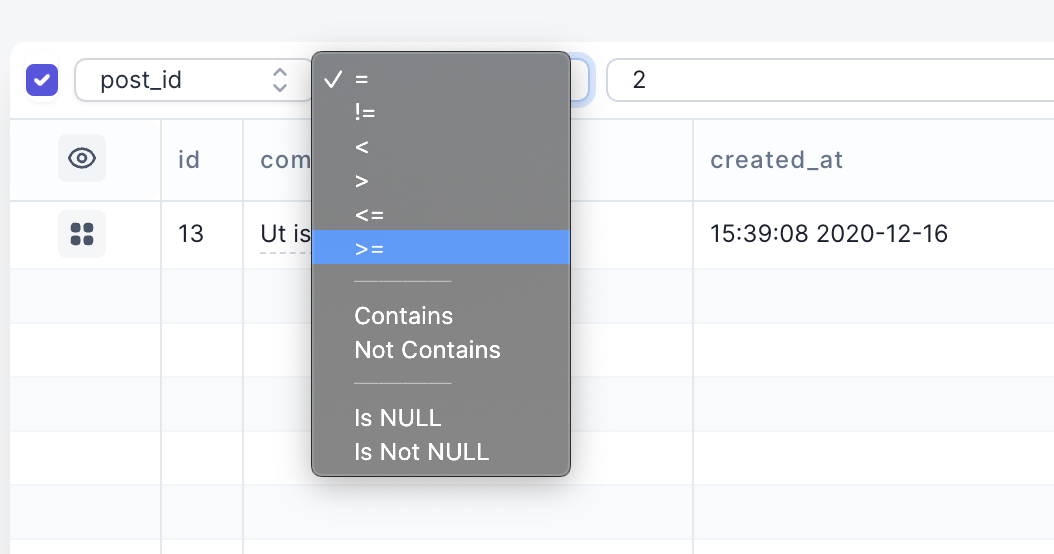
Eloquent Search#
To give you complete control over you Laravel models, you can also filter the result using a custom Eloquent query. Select "Eloquent" in the dropdown where you can find all of your model columns. This will give you an input field where you can write the query to filter the table results yourself. You can make use of any available Laravel eloquent query method.
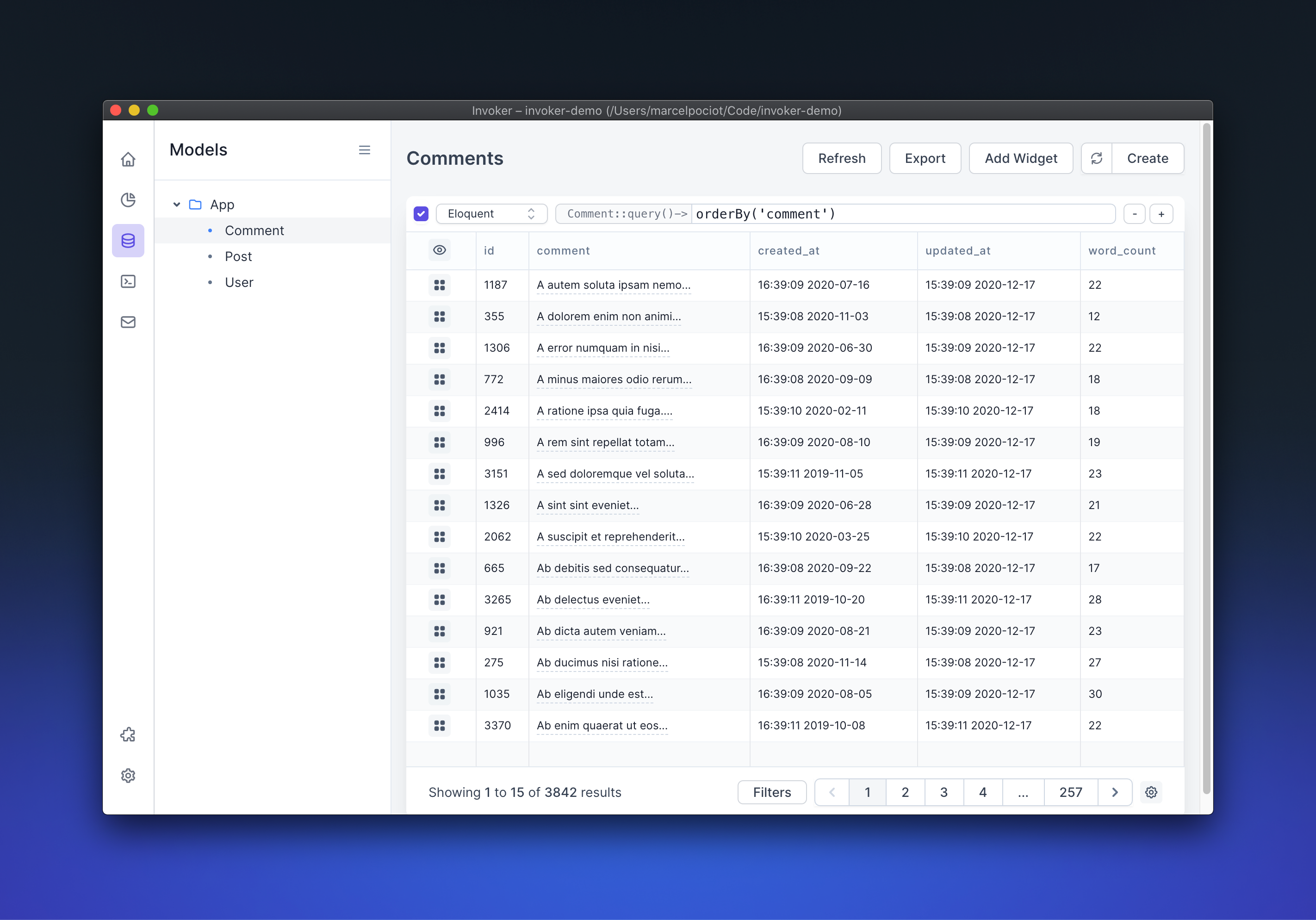
Applying Scopes#
As you might know, you can group commonly used query snippets as scopes on your Eloquent models. These scopes can be used to filter models in Invoker as well.
When filtering a model that contains scopes, a "Scopes" button is available. Press it to see a list of all available model scopes. Simply click on the scope to apply it on the visible results.
